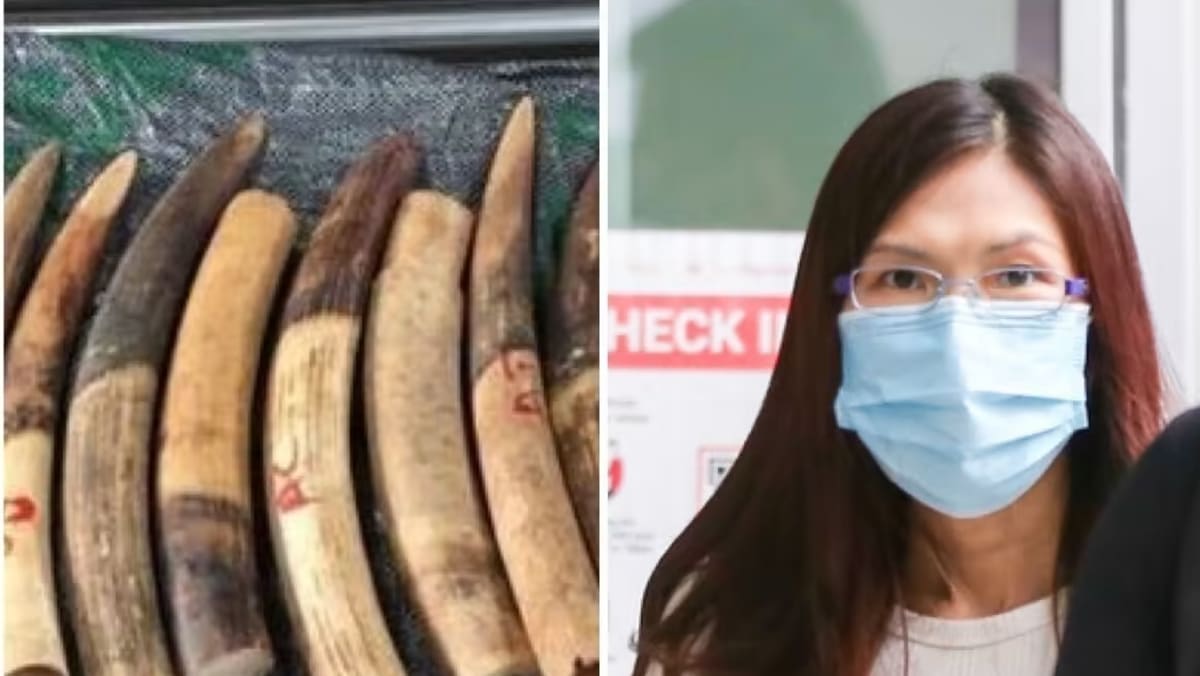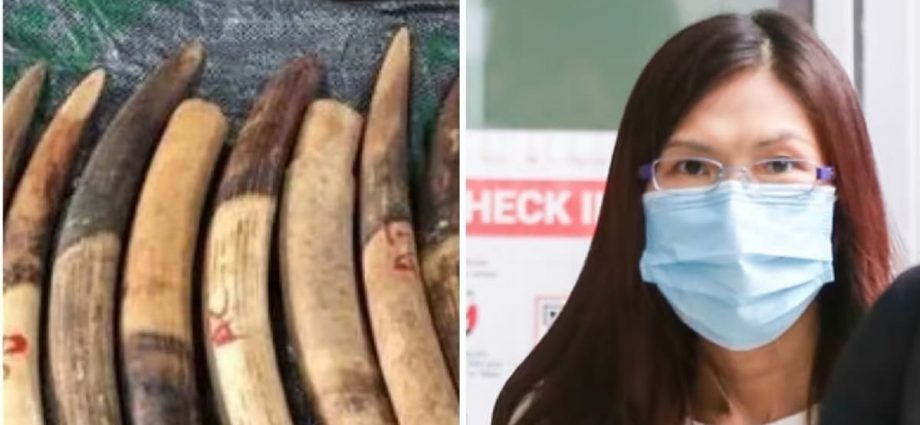
SINGAPORE: The director of a trading firm was sentenced to 10 months’ jail on Wednesday (Feb 15) for importing 1,787 pieces of elephant tusks from Africa into Singapore, en route to Vietnam.
The tusks of the endangered species weighed 3,480kg and were found in a 40-foot container at Pasir Panjang Scanning Station in March 2018.
Vietnam national and Singapore permanent resident Dao Thi Boi, 40, had claimed trial to the charge under the Endangered Species (Import and Export) Act.
She was the director of VNSG Trading and Song Hong Trading & Logistics at the time.
The shipment, which came from Nigeria in Africa, was declared to contain only groundnuts and was marked for re-export to Vietnam.
It was intercepted by an Immigration and Checkpoints Authority officer who had scanned the container.
Elephant tusks were found packed inside gunny sacks and hidden among other sacks of groundnuts.
Dao’s lawyer Wee Pan Lee argued that his client did not import the tusks into Singapore as the shipper, a company in Nigeria that was not linked to Dao, had stuffed and sealed the container at the port of origin and was responsible for its contents.
Mr Wee also argued that Dao was unaware that the contents of the container were anything else but groundnuts, as stated in documents provided to her.
If the shipper had chosen to put elephant tusks into the container, Dao was none the wiser and would not be in a position to check, said Mr Wee.
District Judge Ong Chin Rhu convicted Dao of the charge, saying that guilty knowledge that there were elephant tusks in the container for import was not a necessary ingredient of the offence.
While the judge accepted that the elephant tusks had been packed into the container in Nigeria and that there was no evidence that Dao was aware of this, she said Dao had not taken all reasonable precautions and exercised all due diligence to avoid the commission of the offence.
She also accepted the prosecution’s arguments that Dao’s past dealings in very similar transactions over the import and re-export of nuts from Africa to Vietnam through Singapore had raised red flags.
These include a Vietnamese client’s instructions to Dao to change the description of the goods, and Dao’s knowledge that her client wanted to import goods into Singapore before re-exporting them in order to mask their origin.
Despite the red flags from multiple dealings, Dao continued to allow her client to use her company as a consignee to import goods into Singapore.
In sentencing, Judge Ong said there was no evidence that Dao was profiteering directly from illegal wildlife trade, or that she stood to gain anything more than the fees she usually charged for her services as a freight forwarder.
However, due weight must be given to the harm in this case, which was significantly more extensive than a precedent case used for comparison, said Judge Ong.
The defence counsel is applying for bail pending appeal.
The penalties for importing any scheduled species without a permit are a jail term of up to two years, a fine of up to S$500,000, or both.

